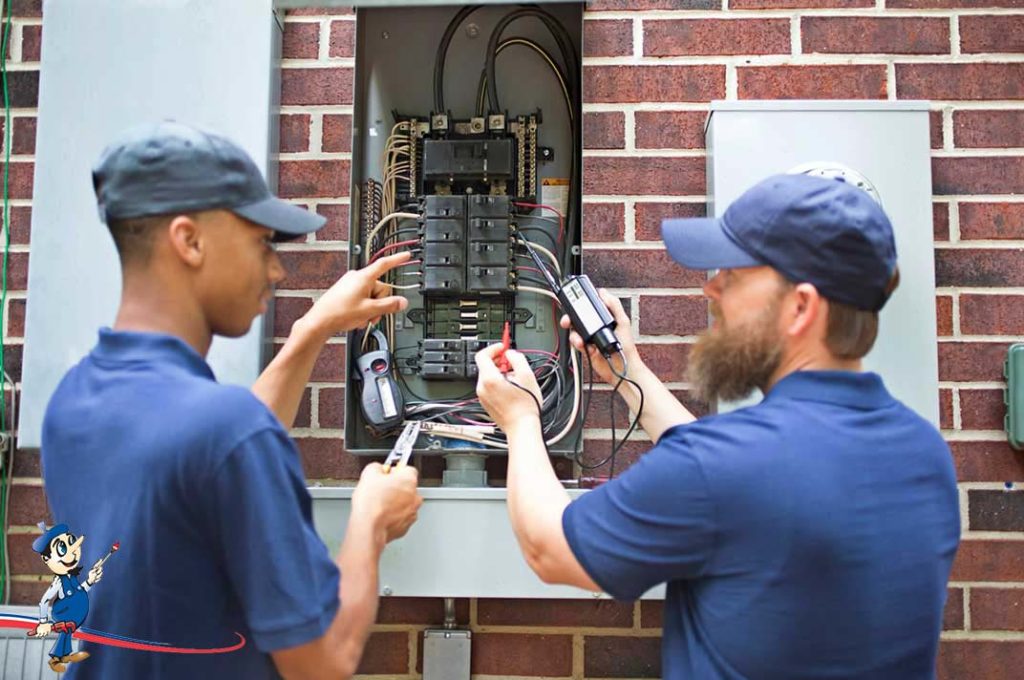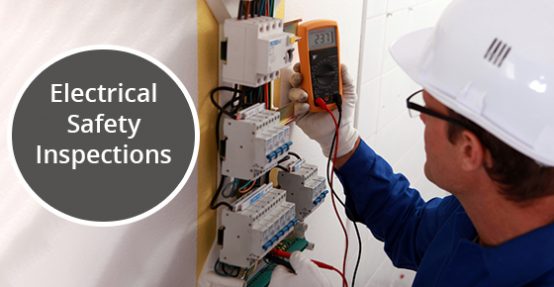Electrical Safety Inspection: The Ultimate Guide to Passing
Due to the fact that electricity is such a constant part of our daily lives, it’s easy to take it for granted. It feels comparable to the sun shining over our heads or the moon coming out at night. Many tend to adopt the same attitude towards electricity as they do towards the sun and moon: “It’ll take care of itself”. After all who ever heard of a sun technician?
But having that sort of attitude to electricity can be dangerous, even fatal. Every year, thousands of people are fatally injured and suffer damage worth billions because of a lack of electrical safety knowledge. According to Electrical Safety Foundation International, electrical outlets and receptacles alone account for more than 5,300 home fires, over 100 injuries and at least 40 deaths every single year.
What’s the point of an electrical safety inspection anyway?
Having an electrical safety inspection done on your home might seem like a bother but try not to see it that way! Ensuring that the electrical safety inspection is conducted periodically and properly is extremely vital for your family and property.
Protect your property
Electrical surges are a common phenomenon in much of the United States. They can not only ruin your appliances but also create short circuits in your house, leading to fire that can cause severe property damage.
Someone could get hurt
Electrical wiring does not last forever. Due to wear and tear, it deteriorates along with its associated accessories. This deterioration can lead to nasty experiences such as electric shock or fire

Top Tips for Home Buyers
Make sure you know what you can afford – Speak to the bank first. It’s easy to get carried away looking for that dream property but make sure you can afford it first by getting an ‘Agreement in Principle’ from your bank
Check out the neighbourhood – Make sure you investigate where you are buying thoroughly, you can find out crime levels to school results simply by punching in the postcode but nothing beats visiting the neighbourhood on foot to get a feel for the area
Budget, budget, budget – there are lots of additional costs a first time buyer might not be aware of such as legal fees, stamp duty, surveys and other technical reports such as an Electrical Installation Condition Report. Don’t get tripped up by not being prepared
Don’t be fooled by staging – Cleverly placed mirrors, strategic lighting, manicured gardens and fresh paint are all ways sellers are able to make their home seem more appealing
The devil is in the detail – When viewing a property, make sure you check for any obvious issues such as damp, mould or cracks in the walls but don’t overlook potential hidden dangers like old or faulty wiring which can be dangerous and expensive to repair. Download Electrical Safety First’s ‘Home electrical safety check’ app to help you identify any visible electrical issues
Professional Electrical Safety Inspections Done Right
To avoid electrical related accidents, it’s always best to undergo electrical safety inspections. You don’t want to risk the lives of your loved ones, nor do you want to risk losing all of your possessions and valuables to an electrical fire. Everything can have an impact on your home’s electrical circuit including age, usage, and the installation of newer electrical devices. When buying, selling, or even just for your peace of mind, it’s important to have an electrical safety inspection done.
There are a few important things that you need to keep in mind when it comes to your household and electricity usage. In order to protect your family and loved ones it is in your best interest to know and understand your homes electrical panel. You need to know which fuse or switch on your panel controls the corresponding light or outlet. If you have any doubt with regards to your homes safety, have a licensed professional come to your home to conduct the necessary and relevant checks.
The National Electrical Code (NEC) is the standard code that all licensed electricians must adhere to in order to meet state and local regulations with regards to electrical safety standards. Remember, each state has its own specific rules and regulations regarding electrical codes. You need an electrician who is licensed to work in your specific state. It is illegal for any person to do an electrical installation if they are not state licensed. Licensed electricians need a minimum of 14 hours approved continuing education to ensure that they understand all code regulations and are up to date on any changes that may have occurred.
General Electrical Safety Checklist:
Are all light fixtures working and have diffusers been installed?
Are the cords in good condition without signs of deterioration, bends, or wear and tear?
Are extension cords being used in place of permanent wiring?
Are all appliances grounded?
Check the wiring methods and ensure that they are suitable for the current use.
Ensure that all conductors of a circuit are grouped together.
Check for wet and damp locations and the suitability of boxes and fittings in that area.
Check wiring and bending space in cabinets and boxes.
Ensure that any switches in wet or damp locations are properly installed in weatherproof enclosures.
Ensure that the household is compliant with branch-circuit voltage limitations.
Check what grounding electrodes are present on the premises.
WHY REGULAR ELECTRICAL SAFETY INSPECTIONS ARE ESSENTIAL
Electricity is one of the biggest conveniences of the modern times. And when your lights, electrical appliances, and other gadgets are all working well, it is easy to assume that the underlying electrical work is in perfect condition. Even when something goes wrong, there is always a quick and easy fix, like replacing a bulb or a broken component in an appliance.
What Does An Electrical Home Inspection Entail?
Electrical home inspections involve the meticulous assessment of your entire electrical system to ensure that all electrical systems, cables, and components – including your home’s wiring and electrical appliances – satisfy the legal safety standards.
All licensed electricians operate under a National Code when assessing your residence, and are required to provide you with a detailed and prioritised list of areas that need immediate attention, as well as recommendations for improvements and upgrades.
Performing Electrical Inspections
For an electrical inspection to be truly helpful, it should only be performed by a licensed electrician with the skills and competency to perform electrical safety checks. You need a residential electrician who has been trained on common issues to look for in residential properties, and how to correct any problems they find.
Finding The Right Electrical Contractor
Electrical inspections are vital for the safety of your home, office, or building. Worn, naked wires and messy wiring create all kinds of hazardous situations that range from deadly electrocutions to destructive fires. Keep in mind that poorly maintained wiring and electrical components can lead to life-threatening problems.

Home Electrical Safety Tips
You power your home with energy, but do you know electrical safety? The United States Consumer Product Safety Commission reports that 31,000 home electrical fires occur every year, and with over 180 cases involving electrocution or electricity-related incidents that could have been avoided, home electrical safety is too important to ignore. At Constellation, we care about the safety of our customers, and by following these electrical safety tips you can protect your home and your family
What causes electrical fires in homes?
The National Fire Protection Association notes that faulty or damaged wiring and related electrical equipment cause 69 percent of electrical fires, followed by lamps, light fixtures, cords, plugs, transformers and other power supplies. When looking for potential fire hazards in your home, always be sure to consult with a professional.
Check that you’re using the correct wattage in all your fixtures and appliances.
Using the right bulbs can prevent electrical problems, so check all lamps, fixtures and appliances to ensure you’re using the correct wattage. If a light fixture has no wattage listed, use 60-watt bulbs or less. For unmarked ceiling fixtures, choose 25-watt bulbs.
Watch out for overloaded outlets to protect your home.
Overloading an electrical outlet is a common cause of electrical problems. Check all outlets to ensure they are cool to the touch, have protective faceplates and are in proper working order
Replace or repair damaged electrical cords to keep your home safe.
Damaged power cords are a serious residential electrical safety risk, and they are capable of causing both fires and electrocution. All power and extension cords should be checked regularly for signs of fraying and cracking, and they should then be repaired or replaced as needed. Power cords should not be stapled into place or run under rugs and furniture. Cords under rugs pose a tripping hazard and can overheat, while furniture can crush cord insulation and damage wires.